10 Japanese Home Remedies to Fight Any Cold
Winter can sometimes feel long in Japan (especially without central heat!), and February is one of the coldest months. While we hope you don’t catch any germs, why not learn what those indestructible Japanese grandmas eat and drink to fight their colds?
By Diletta Fabiani10. Green Tea
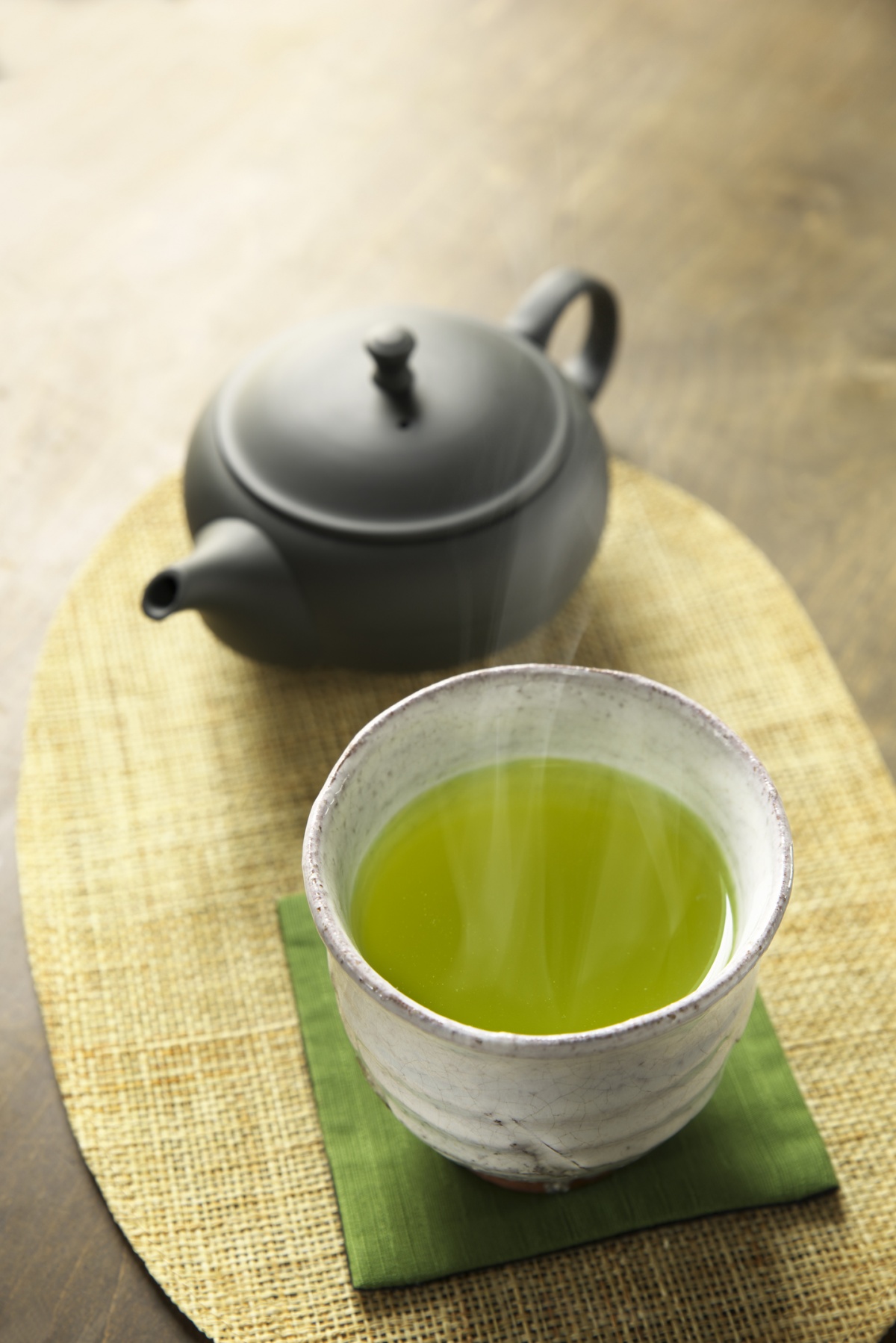
http://custom.amanaimages.com/allabout/ImageInfo.do?refer=imageid&imageid=10341009153&d=1453296757451
You should really drink green tea as much as possible for prevention of colds anyway, but it’s even more important when you’re already sick. It's full of antioxidants and it helps your metabolism, but most of all it can kill harmful bacteria of all kinds, keeping you young, skinny and healthy.
Green tea is sold everywhere in Japan in different kinds, qualities and price ranges, so hop to your local supermarket and check the 緑茶 (ryokucha) section (and read the Wikipedia entry to distinguish among all the different kinds).
9. Onion
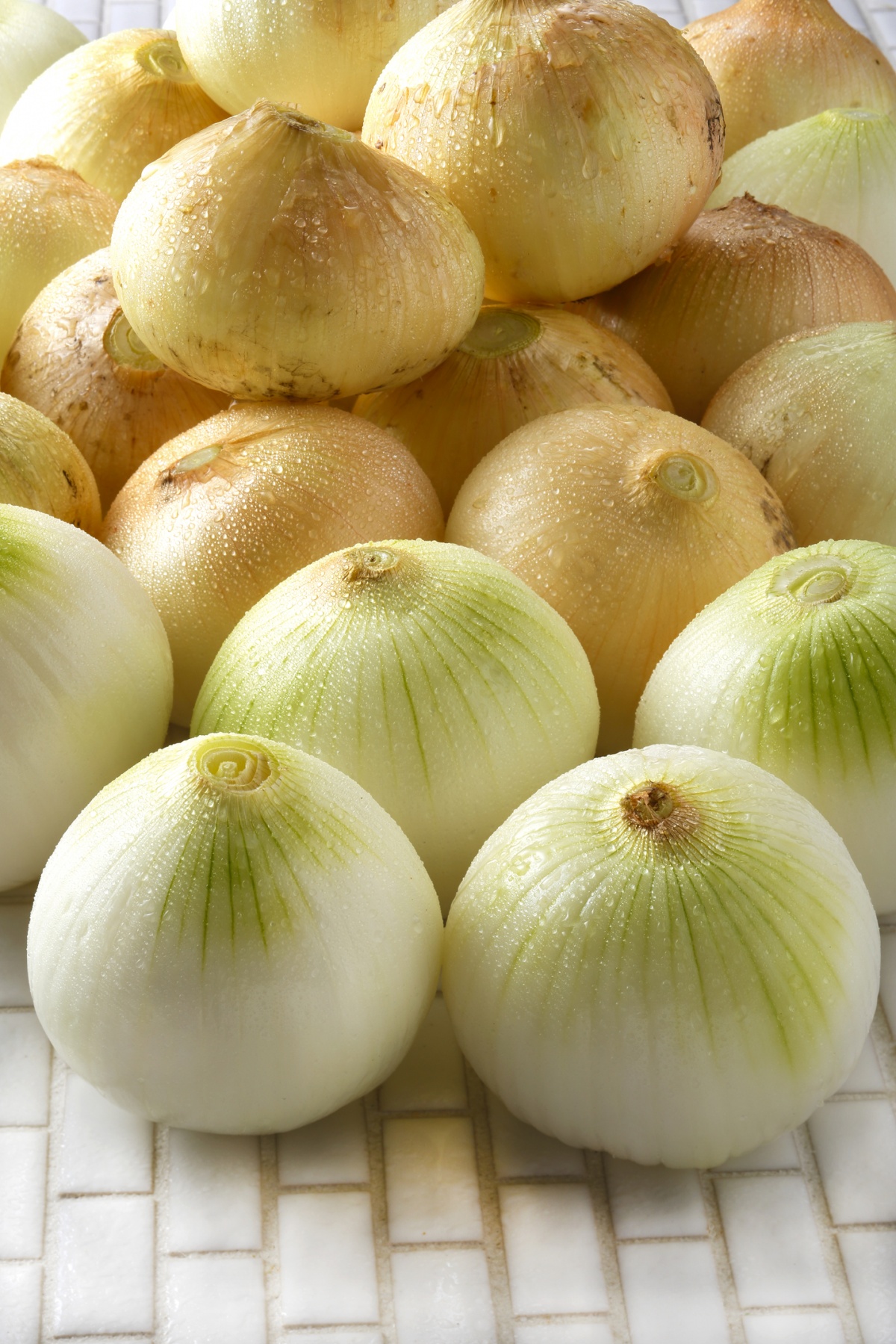
http://custom.amanaimages.com/allabout/ImageInfo.do?refer=imageid&imageid=10157001767&d=1453296926902
While you can eat it as it is, you can also grate it and add onion to hot water with a pinch of ginger and honey. The healing seems to come from anti-inflammatory properties, high concentration of vitamin C and presence of flavonoids, which provide health benefits through antioxidant effects. Also, as hinted by the distinctive odor, onions should help you clear your nose.
8. Shiitake Mushrooms
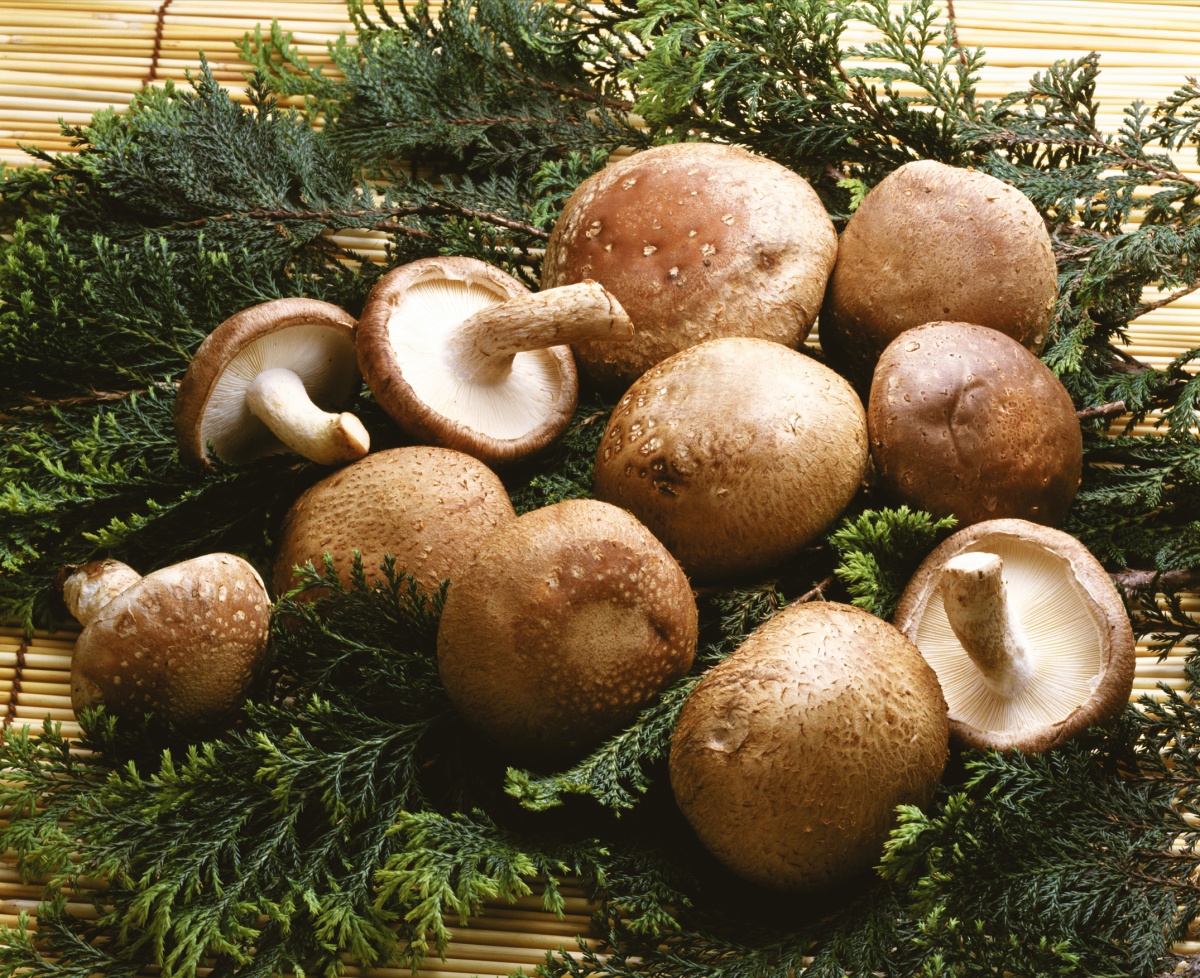
http://custom.amanaimages.com/allabout/ImageInfo.do?refer=imageid&imageid=28144030833&d=1453297069479
Shiitake mushrooms are traditionally used to boost your immune system. The good thing is, there are countless ways to cook them! You can add them to miso soup, eat them steamed or even simmered with other vegetables. Scientists are studying the effects of these mushrooms on preventing the growth of tumors, though there's no solid data yet.
7. Suguki (Pickled Turnips)
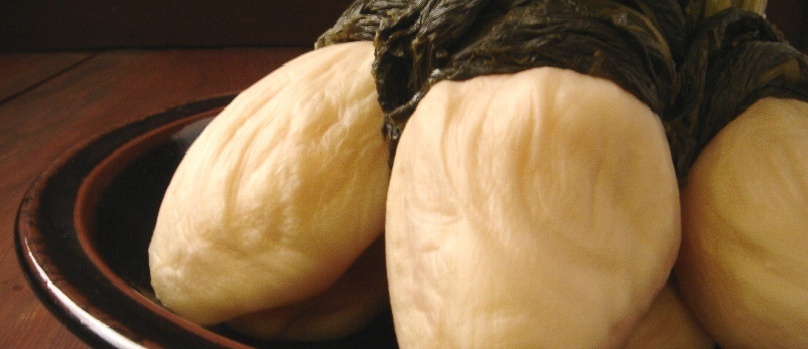
http://www.suguki-narita.com/
A suguki is the pickled version of a Japanese turnip called sugukina. While quite rare in the West, suguki is a typical tsukemono (pickled vegetable) of Kyoto, and it has a distinctive, plain, salty taste with a mildly acidic aftertaste.
While not definitive, a 2013 study demonstrated that a strain of bacteria contained in suguki turnips alleviates flu symptoms in mice. While human testing is still underway, we suggest you start preparing your stockpile for the next winter before the news spread!
6. Umeboshi (Pickled Plums)
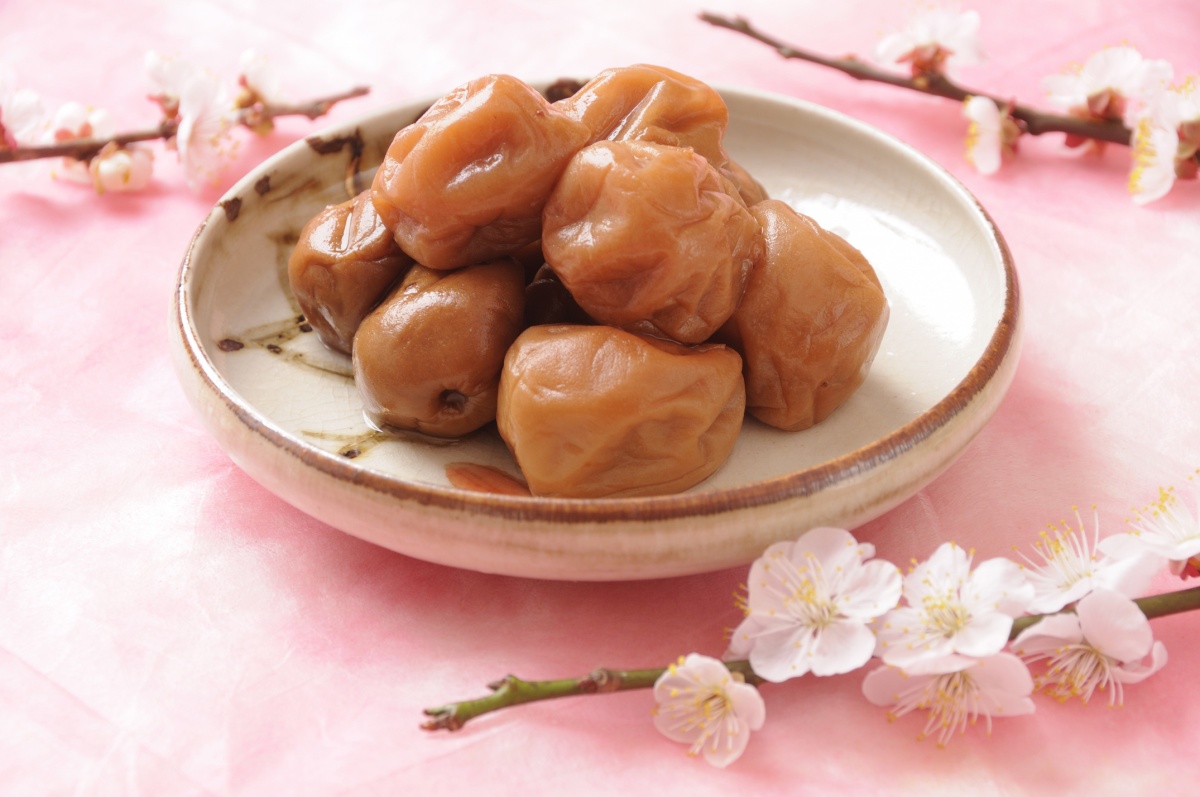
http://custom.amanaimages.com/allabout/ImageInfo.do?refer=imageid&imageid=10151000130&d=1453297225764
While they might not meet everyone’s taste, umeboshi are among the favorite DIY remedies in Japanese households. You can eat them on their own, but try cooking them on low heat, chopping them in small pieces and adding them to your tea. For extra health, add some ginger and lemon. The plums are full of other great properties too, as they’re thought to combat fatigue, stimulate your digestive system and help you with that terrible hangover from last night.
5. Yuzucha (Yuzu Tea)
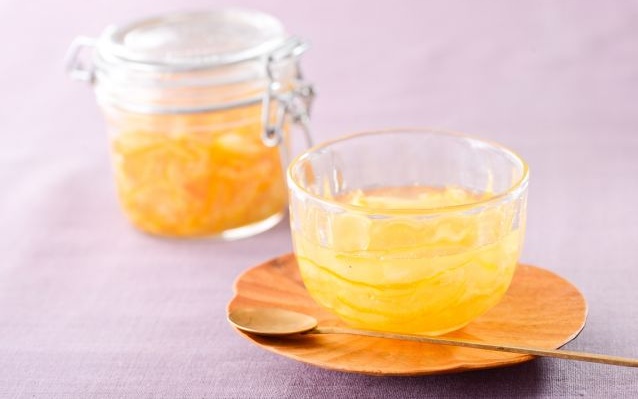
https://ryorisapuri.jp/recipes/%E3%82%86%E3%81%9A%E8%8C%B6
Yuzu is a citrus fruit similar to lemon, mostly common in East Asia. While the name includes the Japanese word for tea, yuzu-cha is sold in glass jars and looks more like a jam. Put a spoonful in hot water to create a tea that will instantly make your sore throat and cough better.
You can also make yuzu-cha at home if you're feeling crafty! Freeze some yuzu, put it in a jar, add half of its weight in granulated sugar, shake and wait for the sugar to melt before putting it in the refrigerator.
Yuzu-cha can be found in any Japanese supermarket; just look for a jar with ゆず茶 written on it.
4. Hachimitsu Daikon (Honey Radish)
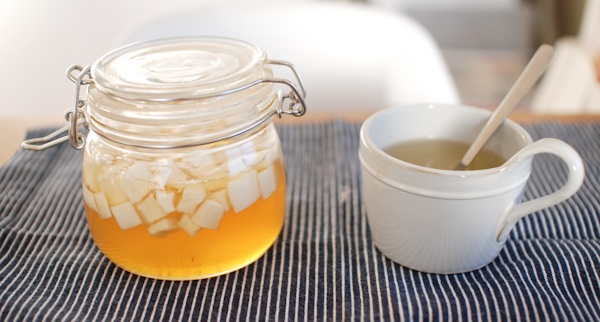
http://www.offitsuku.com/index.php/archives/13403
The daikon radish is supposedly full of vitamin C and rich in enzymes that can help dissolve mucus. On top of that, it can be eaten however your heart desires: raw, pan-fried, even simmered in soup.
For colds and sore throats, there's a specific recipe called hachimitsu daikon (honey radish). Cut the daikon in small pieces and put it in a container, cover it with honey and let it rest for a few hours. When the daikon juice seeps out, it will create an extract that you can consume straight or mixed with hot water to immediately relieve your throat.
One final good thing about daikon: it’s crazy cheap! You can also find smaller cuts at supermarkets if you’re afraid of wasting it once your cold is miraculously healed.
3. Shoga-yu (Ginger & Honey Tea)
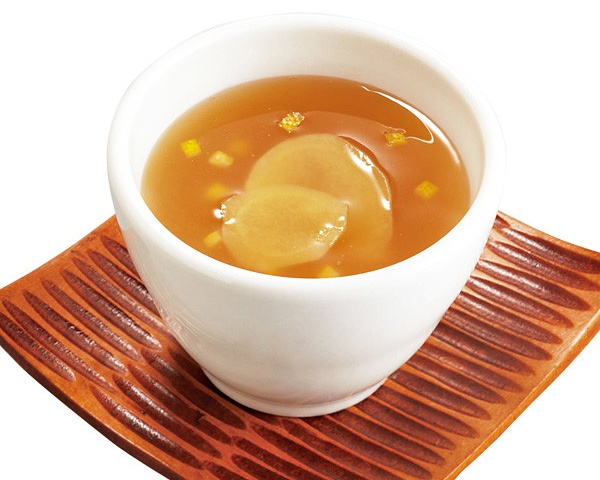
https://www.rankingshare.jp/rank/byrgnmnnyw
While you might be familiar with the tradition of using ginger to “clean your mouth” between sushi dishes, this precious root is also a good remedy against colds! One way to intake its miraculous properties is by grating it and mixing it with tea and honey to create shoga-yu, a popular Japanese home remedy. All these three ingredients are supposed to have antiseptic qualities.
It’s actually scientifically proven that ginger contains a very high level of manganese, a fundamental element in our antioxidant system.
2. Okayu
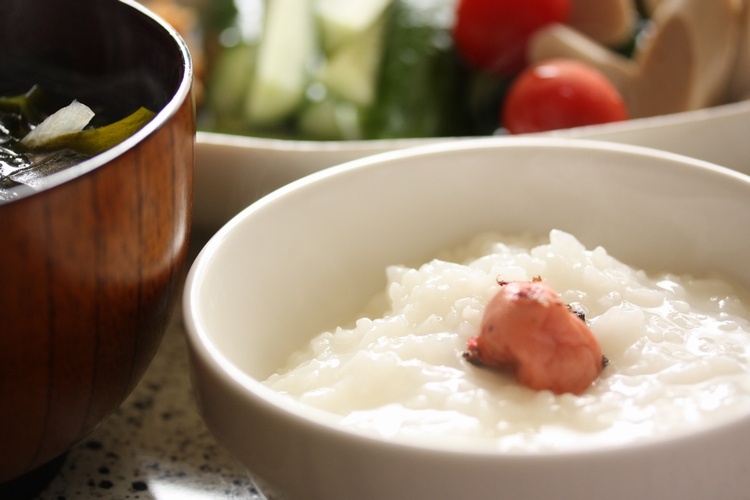
http://momogirl.jp/beauty/post-4954/
Okayu, also called simply kayu, is a congee/porridge made of rice and water. It can be seasoned with salt and enhanced with various toppings, such as green onion, salmon roe or ginger, and even umeboshi for a double combo that will knock the disease down!
Okayu is typically served to people who are sick because it's easy to eat and digest, while still containing important nutrients. It's also eaten by the elderly and infants in the weaning period for the same reasons.
If you have a rice cooker at home, check the settings: most likely you will find a お粥 or おかゆ (okayu) setting, which will make cooking this dish a breeze (even when you're deadly sick)!
1. Tamagozake (Egg Sake)
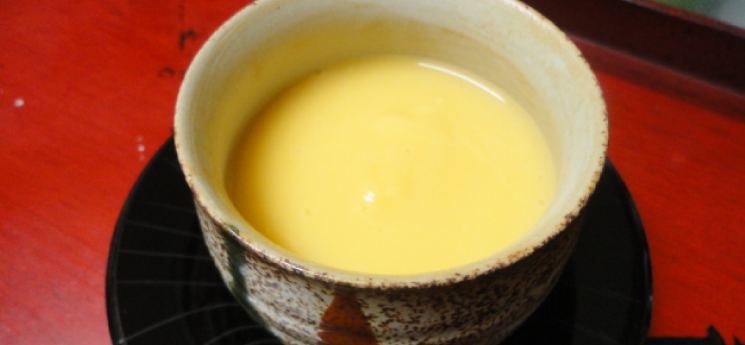
http://www.nomooo.jp/column/tamago-sake/
The name itself is a combination of the kanji for tamago (egg) and sake (alcohol), so you can tell right away that this remedy might not be good for everyone!
In fact, tamagozake is a kind of Japanese eggnog made with 180 milliliters (6 fl oz) of heated sake, a couple of teaspoons of honey (or sugar if you prefer) and one raw, beaten egg: mix it all together until you get a thick cream and you're good to go!
The egg will reinforce your immune system, the honey will help you with your sore throat and the sake will put you to sleep. If you drink enough of it, at least the last one should work!




